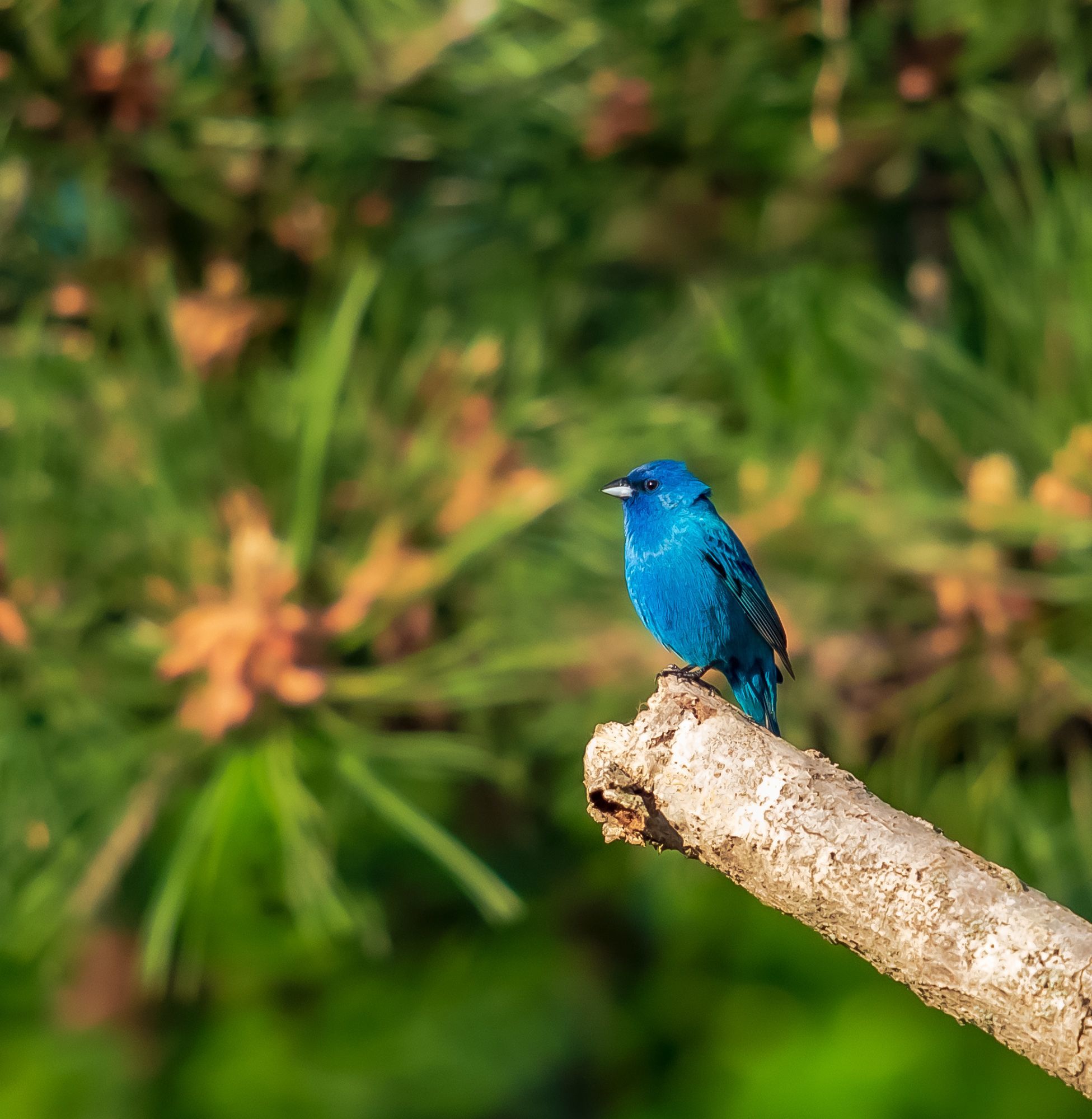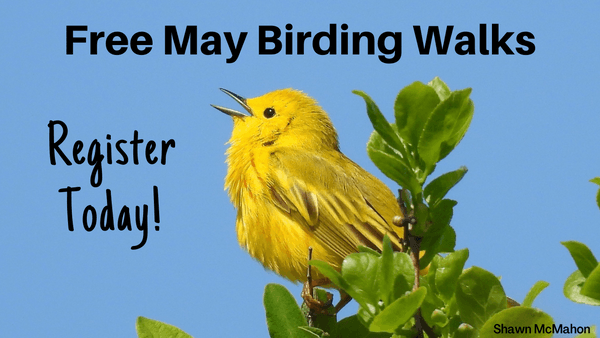
Ed Hughes
What You Can Do to Protect Birds
by Dr. Charles Clarkson, Director of Avian Research
Easiest and Most Effective
- Put UV decals on your windows to prevent bird-window strikes. An estimated one billion birds die each year from window strikes in the U.S alone. Decals can be purchased in the Audubon Nature Shop, at Wild Birds Unlimited Stores, or can be ordered from Amazon.
- Keep your cats indoors. Domestic and feral cats kill approximately 2.4 billion birds year each in the U.S. alone. Cat predation is close to habitat loss as a main driver in bird population declines.
- Provide foraging and nesting habitat in your backyard. Providing stocked feeders, native plants, nest boxes (or tree cavities), and ample shrub-habitat will allow your local birds to feed efficiently, avoid predation, and nest successfully.
- If you feed birds, it is better to continue doing so during inclement weather events to provide extra nourishment for birds that may become stressed. Stocked feeders may also be used by migratory birds en route to breeding and wintering grounds. Visit the Audubon Nature Shop in Bristol for a wide selection of feeders and seed. Cleaning bird feeders and baths should be a regular practice to keep wild bird communities healthy. If you notice any sign of sick bird, please take down your feeders immediately. The best way to feed birds is to plant native, wildlife-friendly plants. Native plants produce berries and seeds that wild birds are accustomed to eating. Native plants also support robust insect populations. Insects are the MOST critical food source for baby birds during the breeding season.
- Don't feed birds bread or other food scraps. Bread and other processed snacks like crackers, cereal, muffins, etc are bad for birds. These foods can cause severe compaction of the digestive system, growth deformities, and in some cases death.
Easy and Effective
- Purchase certified bird-friendly coffee. Purchase coffee that has been certified “bird-friendly” by the Smithsonian Migratory Bird Institute. This coffee is produced without the removal of rainforest habitat, which is critically important for migratory birds.
- Avoid the use of pesticides (herbicides, insecticides, fungicides, rodenticides, etc.) in your yard. The vast majority of birds consume insects, particularly during the breeding season. Applying pesticides to your lawn can have severe negative impacts on birds, including death.
- Contribute to long-term, community science projects. Cornell Lab of Ornithology collects data from community scientists all over the world and uses these data to create maps depicting bird abundance, distribution, and climate-change-driven population fluctuations. Collecting and reporting data is easy. Learn more and create an eBird account today.
- Instill a sense of awe in a child. Do you have children? Grandchildren? Neighborhood kids? Take a child birding or even for a simple nature walk. Kids are the next generation of conservationists. Getting them excited about nature and birds will pay dividends as they come into positions of power later in life. We offer numerous nature programs and events each month.
Hardest, but Very Effective
- Donate to Audubon to conserve birds and habitats. Donating money to Audubon can go a long way towards the conservation of habitats and declining bird populations in Rhode Island. Audubon makes it easy to donate online. Visit asri.org/donate.
- Talk to your neighbors about managing their yards. Consider planning with neighbors to provide birds with continuous habitat across both of your properties. Encourage them to plant native vegetation, keep their trees standing, avoid mowing fields until after breeding season has ended, and provide feeders for birds.
- Stop using plastics. Avoiding plastics is very difficult to do in modern society, but look for alternatives that are made from glass and aluminum. They are far more recyclable and don’t cause as much harm to the environment.


















